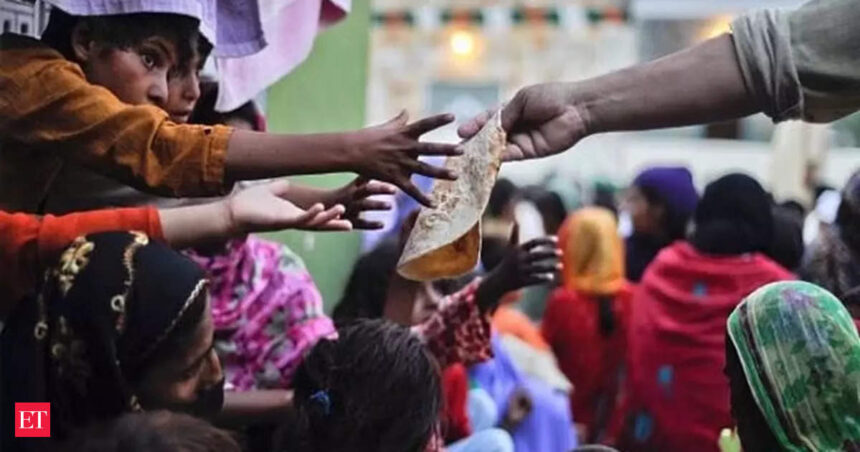“The Global Hunger Index continues to be a flawed measure of ‘Hunger’ and does not reflect India’s true position,” the ministry of women and child development noted in its response to the report.
“The index is an erroneous measure of hunger and suffers from serious methodological issues,” it further said.
The report places India below its neighbours Pakistan (102), Bangladesh (81) and Nepal (69) in the index. It points out that India had the worst rates of wasting, with 18.7% of the children under five who have low weight for their height.
“India has the highest child wasting rate in the world, at 18.7%, reflecting acute undernutrition,” it said.
In contrast, the government noted that its own Poshan Tracker, which has been lauded as a game changer by international organisations, showed a wasting rate below 7.2%.The government tracks over seven crore children with the Poshan Tracker.“Three out of the four indicators used for calculation of the index are related to the health of children and cannot be representative of the entire population. The fourth and most important indicator, ‘Proportion of Undernourished (PoU) population,’ is based on an opinion poll conducted on a very small sample size of 3000,” it further pointed, poking holes at the GHI methodology.
The GHI study also noted a higher rate of anaemia in women aged 15-24 in India at 58.5% compared to some of the African countries like Sierra Leone, Gambia and Benin.
The report notes an improvement in stunting and mortality rates in the country in 2023 compared with 2015 but pointed to a worsening of wasting rates and undernourished population.
The share of the undernourished population, as per the study, increased from 14% between 2014-16 to 16.6% between 2020-22, the report stated.
“Stunting and Wasting are outcomes of complex interactions of various other factors like sanitation, genetics, environment and utilisation of food intake apart from hunger, which is taken as the causative/outcome factor for stunting and wasting in the GHI. Also, there is hardly any evidence that the fourth indicator, namely, child mortality, is an outcome of hunger,” the ministry said.








